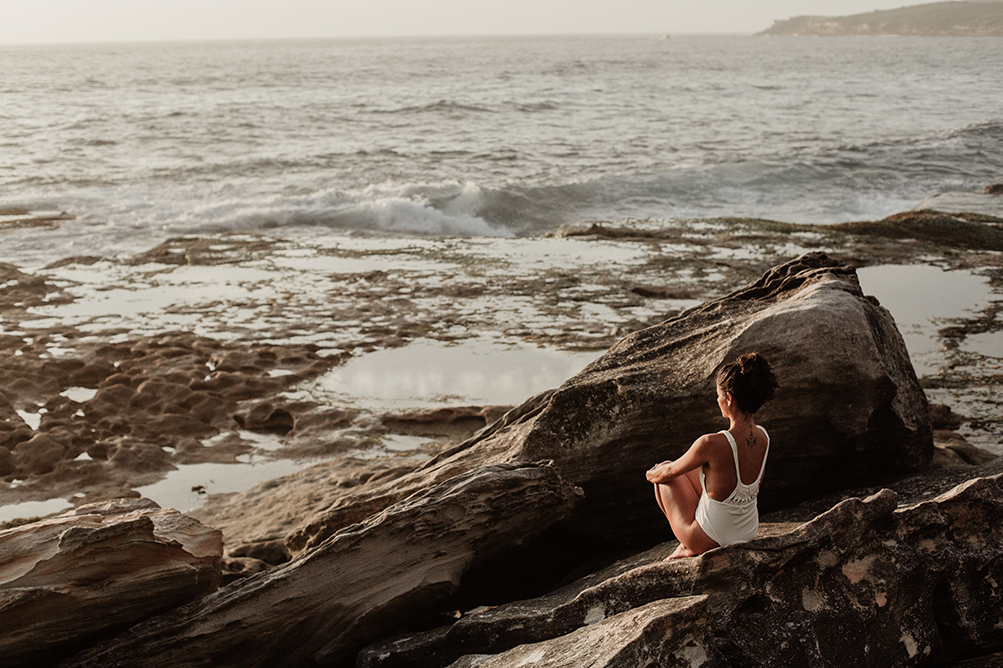For most of my life I’ve been an incredibly skeptical person. I had a childhood interest in witchcraft and astrology, but as soon as I hit my teenage years, I decided that following science and logic was the only way to find insight. I had never been brought up with any religion, save for a couple of scripture classes in primary school, and wasn’t about to get caught up in hippy-dippy concepts like spirituality or yoga.
I forged an identity as being a “smart person” pretty early on in life, and I felt that this meant that nothing could be helpful besides that which I could see or verify for myself. Turns out I was wrong.
It was only later in my life that I ultimately found the courage to see a psychologist. I had been battling with my own brain for almost a decade at that point, and while I’d made progress on my own, I had finally accepted that I needed help in order to make the changes I needed.
In one of my very first sessions the idea of meditation came up. Anxiety was one of my biggest issues at this point, and it was beginning to overwhelm my whole life. I was terrified of everything and everyone, and my self-esteem was at rock bottom. My psychologist began to ask about my coping strategies.
After finding out about my one and only healthy strategy, regular running, she began to make a few suggestions – and the very first one was meditation. I immediately scoffed. However, I decided to hear her out. This was my first attempt at psychology, so I figured I should at least give it my all and see what could happen.
To my surprise, she laid out a pretty compelling case for mediation right from the start. Perhaps she could tell I was incredulous, because she stated some statistics from research proving its effectiveness. I’ll admit this made it easier to swallow, and made it seem more like a medical intervention than a spiritual one. She also recorded a customized meditation track specified to my needs, which made it feel more personal and like it had a greater chance of making a difference.
My psychologist suggested I try to meditate every day for the best effectiveness. At the time I was struggling to even get to work every day on time, so I often only managed one session per week, if that. However, I had to admit that when I did make the time to sit and focus on meditating, it did lighten the load and bring me back to a calmer place.
As time went on and I began to feel more functional in my day-to-day activities, I was actually able to work up to an (almost) daily meditation practice. I was able to sit and appreciate this new sense of calm that I had been unable to access in any way previously. By this time, I had branched out into using a meditation app, which recorded how many days in a row I could go without skipping a session. I loved using this as an added motivator and, at my best, I made it to a streak of over 100 days!
Since that time, I’ve actually lagged in my meditation practice. The pandemic has sent a lot of my regular routines into disarray, and I’m still fighting to get things back into some form of a schedule. However, I’m still so glad that I was able to give it a go and find another piece of the puzzle that really helps me in managing my anxiety and depression. Whenever I am having a really bad anxiety day, I know I can rely on meditation to help make things feel manageable again.
Opening my mind to meditation has also made me more receptive to other types of alternative therapies and practices, and most of all to never judge other people for doing whatever helps them heal! Science can be very useful in determining how we move forward in our knowledge of mental illness, but it is not the be-all and end-all for everyone. There are so many other forms of support and therapy that can be just as rewarding, for the right person. For this reason, I’m not even going to say that meditation will be helpful for you, only that you should try out a range of different healing strategies and see whether they work for you before jumping to conclusions! And, on the flip side, never to be evangelical about whatever practices work for you, because we are all individuals and there is no one-size-fits all.
This piece was written by one of the ICLA eFriend Peer Support Workers. eFriend is an online platform where you can connect with a trained peer support worker whom has their own lived experience of feeling lonely, isolated, stressed or worried. You can speak to your eFriend Peer via video or phone call. Your eFriend Peer will listen, validate and provide hope. If you like, they can also assist you to identify any other services you may like to try or help you create plans to improve your personal well-being. Or they can simply listen.
To book your first call visit: https://my.efriend.org.au/preregistration/


